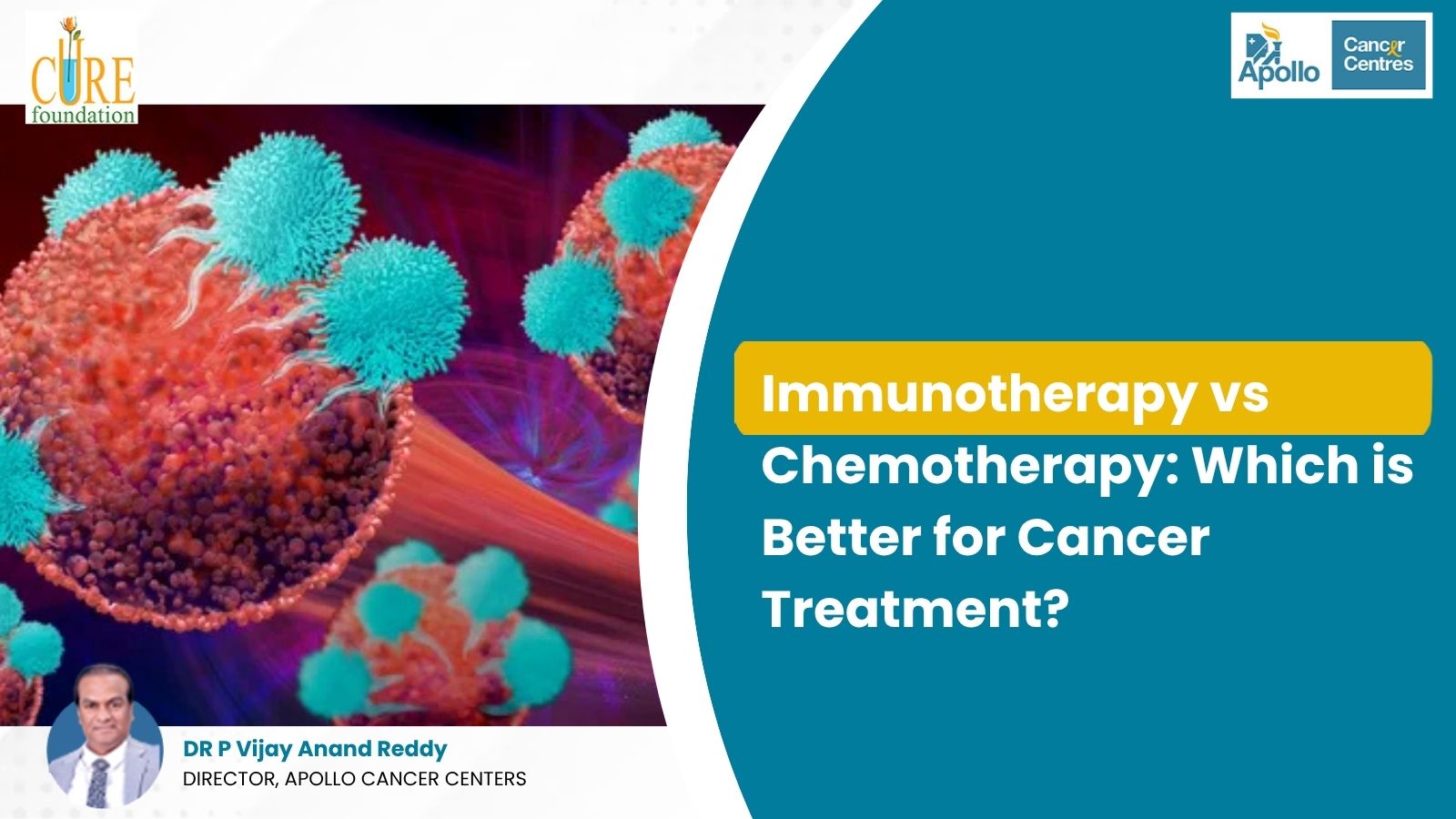Cancer treatment has evolved dramatically over the past few decades, with groundbreaking therapies offering new hope to patients. Among the most widely discussed treatments are chemotherapy (the traditional approach) and immunotherapy (a newer, innovative method). But which one is better? The answer isn’t straightforward—it depends on the type of cancer, stage, and individual patient factors.
In this blog, we’ll compare immunotherapy and chemotherapy in Hyderabad, exploring how they work, their benefits, side effects, and which treatment may be more suitable for different cancers.
Understanding Chemotherapy: The Conventional Approach
How Does Chemotherapy Work?
Chemotherapy uses powerful drugs to kill rapidly dividing cancer cells. Unlike targeted treatments, chemo affects both cancerous and healthy cells, leading to side effects.
Types of Chemotherapy
- Curative (to eliminate cancer)
- Adjuvant (after surgery to kill remaining cells)
- Palliative (to relieve symptoms in advanced stages)
Benefits of Chemotherapy
- Proven track record – Effective for many cancers (leukaemia, lymphoma, breast cancer).
- Fast-acting – Shrinks tumours quickly in aggressive cancers.
- Widely available – Accessible in most hospitals.
Side Effects of Chemotherapy
- Nausea, vomiting, fatigue
- Hair loss (due to damage to hair follicles)
- Weakened immune system (increased infection risk)
- Long-term organ damage (heart, kidneys, nerves)
Immunotherapy: The Revolutionary Alternative
How Does Immunotherapy Work?
Immunotherapy boosts the body’s immune system to recognise and attack cancer cells. Unlike chemo, it doesn’t directly kill cells but trains the immune system to fight cancer.
Types of Immunotherapies
- Checkpoint Inhibitors (e.g., Keytruda, Opdivo) – Block proteins that hide cancer cells.
- CAR-T Cell Therapy – Reprogramms immune cells to target cancer.
- Cancer Vaccines (e.g., HPV vaccine for cervical cancer prevention).
Benefits of Immunotherapy
- Targeted approach – Fewer side effects on healthy cells.
- Long-lasting effects – The Immune system “remembers” cancer cells.
- Effective for resistant cancers (melanoma, lung cancer, Hodgkin’s lymphoma).
Side Effects of Immunotherapy
- Autoimmune reactions (the body attacks healthy tissues)
- Fatigue, skin rashes, diarrhoea
- Rare but severe inflammation (lungs, liver, intestines)
Key Differences: Immunotherapy vs. Chemotherapy
Which Treatment is Better?

When Chemotherapy May Be Preferred:
- Early-stage, aggressive cancers need a rapid response.
- Cancers are highly sensitive to chemo (leukaemia, testicular cancer).
- When immunotherapy isn’t an option (some tumours don’t respond).
When Immunotherapy May Be Better:
- Advanced or metastatic cancers are resistant to chemotherapy.
- Cancers with high mutation rates (melanoma, lung cancer).
- Patients wanting fewer side effects (if eligible).
Combination Therapy: The Best of Both Worlds?
Many oncologists now use chemo + immunotherapy for better results. For example:
Lung cancer – Chemo + Keytruda improves survival rates.
Bladder cancer – Immunotherapy after chemo enhances outcomes.
Expert Insight: Dr. Vijay Anand Reddy’s Perspective
Dr. Vijay Anand Reddy, a renowned radiation oncologist and Director of Apollo Cancer Institute, Hyderabad, has extensive experience in treating cancer with both chemotherapy and immunotherapy. According to him:
“While chemotherapy remains a cornerstone for many cancers, immunotherapy has revolutionised treatment for previously untreatable cases. The key is personalised medicine—assessing the patient’s cancer type, genetic markers, and overall health to choose the best approach.”
Dr. Reddy emphasises that combination therapies and clinical trials are paving the way for more effective, tailored cancer care. His expertise in advanced radiation therapy and immunotherapy has helped countless patients achieve better outcomes with minimised side effects.
Final Verdict: Which is Better?
There’s no one-size-fits-all answer—both treatments have their place in cancer care.
Chemotherapy is a tried-and-tested option for fast-growing cancers.
Immunotherapy offers long-term benefits for certain hard-to-treat cancers.
The best approach? Consult an oncologist, such as Dr. Vijay Anand Reddy, to determine the most suitable treatment based on your specific cancer type, stage, and overall health.
Have More Questions About Cancer Treatment?
If you or a loved one is battling cancer, seek expert advice from specialists like Dr. Vijay Anand Reddy to explore the best treatment options.
Would you like to know more about personalised cancer therapy? Let us know in the comments!

